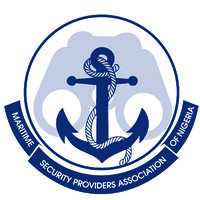

Shipowners, importers lose millions to drug trafficking, stowaway complications — MASPAN
By Seun Ibiyemi
The Maritime Security Providers Association of Nigeria (MASPAN) has shed light on the financial burdens that shipowners and importers face due to prolonged investigations into drug trafficking and stowaway incidents in countries with inadequate legal frameworks.
These delays, which can stretch for weeks or even months, lead to significant losses in time and money, further straining the maritime industry.
Speaking at a press conference held at the secretariat of the Maritime Reporters Association of Nigeria (MARAN), Mr. Emmanuel Maiguwa, Chairman of the AMANO/MASPAN Planning Committee, emphasised the magnitude of the problem.
He highlighted how ships can be detained for extended periods while investigations into the source of drugs or the origin of stowaways are carried out, often at the shipowner’s expense.
“A ship can be detained for several weeks or months while authorities investigate a drug discovery. During this time, the ship must bear the costs, which include administrative and operational expenses.
“This is a significant deterrent for ships operating in countries where legal processes are slow,” Maiguwa explained.
The impact is not just limited to shipowners. According to MASPAN, these losses are often passed on to importers, who rely on shipping services, further driving up costs.
This, in turn, has contributed to the high war risk charges imposed on importers in West Africa, including Nigeria, despite the absence of piracy incidents in the Gulf of Guinea for the past two years.
“These issues also explain why importers in West Africa continue to pay billions of dollars annually in war risk charges, even though the region has been peaceful,” Maiguwa noted.
Seafarers, too, are hesitant to work in countries with unclear legal processes surrounding drug and stowaway discoveries, as the complications can result in long detentions, trials, and harsh realities for the crew.
Recognising the need for change, MASPAN and the Alumni of Maritime Academy of Nigeria, Oron (AMANO), are organising a maritime summit aimed at addressing Nigeria’s capacity to handle such investigations in a timely manner. The summit will bring together shipping industry stakeholders, government agencies, and drug regulatory bodies to discuss practical solutions.
“If we have a scenario where drugs are discovered on a ship, the regulatory agency would have to detain the ship for investigations. That process takes too long, and during that time, the ship foots all the costs. This is what we want to bring to the attention of the industry and find solutions to expedite these processes,” Maiguwa said.
He pointed to countries that resolve such cases within 24 hours as a model Nigeria could emulate.
“We are working to ensure that Nigeria can handle these cases as efficiently as possible,” he added.
The maritime summit on Drug Smuggling and Human Trafficking by Ship, scheduled for August 22, 2024, will be chaired by the Honourable Minister of Marine and Blue Economy, Gboyega Oyetola, and will take place at Eko Hotel, Victoria Island, Lagos.
Expressing further concerns, Maiguwa, who also serves as CEO of Bricks Limited, a maritime security firm, highlighted the personal toll such incidents take on seafarers. “Ships have been detained for months, with crew members placed on trial and forced to remain in detention for years, separated from their families in drug smuggling cases.”
The issue of stowaways is equally pressing. “Human trafficking, especially in Lagos ports, causes significant delays when stowaways are found before a vessel’s departure. When stowaways are discovered after departure, it places a heavy administrative and financial burden on shipowners,” Maiguwa said, emphasising the need for more efficient protocols.
MASPAN hopes that the upcoming summit will lead to actionable solutions. “Our goal is to work with key agencies to ensure that drug and human trafficking in the maritime sector are reduced, if not eradicated. Perpetrators should be penalised, but innocent parties should not bear the cost, and the industry should not suffer.”
At the conclusion of the summit, MASPAN aims to establish a working group to implement the resolutions and ensure that the Nigerian maritime industry can realise its full potential in the “Blue Economy.”




